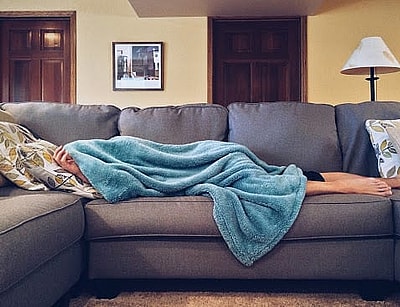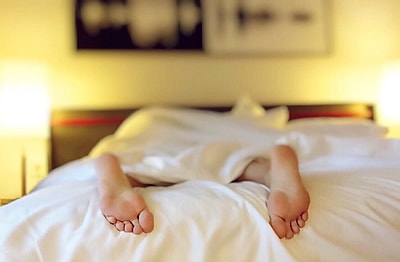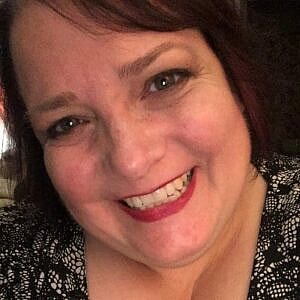WordCamps are amazing events, whether they are huge or small. They all take energy and time. They fill us with good feelings. They add to our knowledge base. They add to our network. They give us opportunities. They build friendships. They even help some of us secure jobs.

And they are incredibly draining – physically and emotionally. Sure, the amount of drain for any particular person varies, but at the end of a camp, it feels like you’ve been to the mountaintop, and there’s nowhere to go from there but down. And being down doesn’t always feel good.
If you’ve attended a WordCamp, you may experience any of the following in the hours, days, or even weeks after it’s ended.
- Sadness
- Happiness
- Depression
- Anxiety
- Confusion about your feelings
- Exhaustion
- Illness
- Excitement
- Or any range of other feelings
Events that we look forward to, plan for, and that require/use a lot of energy are sometimes called “Mountaintop Events” in that they raise you up, energize you, and get you excited about the future. The only challenge with mountaintop events, is that you have to come down from the mountaintop when they’re over.
When I was in high school I first started experiencing what we called “let down.” I acted and sang in many performances of plays and musicals. We would study and rehearse our lines for weeks, build the sets, create the costumes, and block out our movements, until we were ready for dress rehearsal and then the final performance. The culmination of all that work and time was an amazing performance on the stage creating characters and portraying them to the audience. The applause and ovations were amazing.
Then Monday came.
After the performance, there was no more rehearsing, no more designing and creating, and the accolades died out. The let down was devastating. It was exhausting. It was even depressing. We had to find ways to not be dispirited, to re-engage, to take what we had done and “store it” within ourselves.
WordCamps are much the same.
Post-WordCamp Tips
If you find yourself with physical, emotional, or mental feelings after WordCamp, you’re not alone. Many of us experience any number of them, and at varying degrees depending on our involvement and how much energy we expend while we’re there.
But we can take precautions and do some post-event self-work to help us navigate the many ways we react once we get home and back to work.
At WordCamp:
- Don’t stop taking your medications. It’s easy to forget medications when you’re busy from sun-up until way after the sun has set. Set reminders on your phone if you need to, but remember to take your medications.
- Take your vitamins. Public transportation, public restrooms, door handles, armrests, and all of the other public places and things you encounter around WordCamp are places where you will encounter other peoples’ germs. If you don’t know what vitamins you should take, consult your doctor for their recommendation.
- Get sleep. It can be really tempting to stay out or stay up late at WordCamp. After all, there’s no shortage of things to do or people to see. Depleting ourselves by skimping on our sleep doesn’t serve us well at all and only contributes to being emotionally, physically, and mentally run down as the camp progresses and as we return to our everyday lives. Sleep helps.
- Stay hydrated (and not just with coffee). Drinking plenty of water will help keep you mentally present, help your body process what it needs to, regulate your temperature, and keep you moving (at least to the bathroom).
- Eat healthy food, regularly. Don’t skip a meal. Don’t only eat junk. Your body and your brain need healthy food to be productive. Go ahead and have a cookie, but grab an apple, too.
- Listen to your internal voice. Do you feel like you need some quiet time? Do you need to sit down? Are you hungry? Thirsty? Do you miss someone at home and want to hear their voice? Then do what your body and psyche are telling you to do. Seek a quiet place. Find somewhere to rest for a bit. Look for (or carry with you) some food that will energize you. Call someone to hear their voice and check in.
- Unplug once in awhile. It’s OK to not be tied into social media, email, texts, etc. for a bit. Focus on the talk you’re listening to. Engage in conversations. Wander through the sponsor hall and meet people. Take the time to be present.
After WordCamp:
- It’s OK to feel down. Let yourself reminisce about all that you did and learned at WordCamp. Grieve a little that it’s over. Just don’t live in the grief.
- It’s OK to feel energized. Acknowledge all that makes you excited to return and start using what you learned. Put your new knowledge and contacts to work for you. But also be aware that the energy you built up from WordCamp won’t sustain at the same level in perpetuity.
- Write down everything you want to do and remember. You will have met a lot of people and learned quite a bit. Write it down. Journal it. Find a way to keep those things that you want to remember in the forefront.
- Cry if you need to. Sometimes tears help us work through emotions. If crying is cathartic to you and helps you process your emotions, then grab a box of tissues and let it all out.
- Reach out to others. Reach out to the connections you need to process how you feel. Maybe it’s someone new that you met and bonded with at WordCamp. Maybe it’s a friend or family member. It could be your counselor. Whoever that person is, don’t be afraid to reach out and have conversations that help you move forward.
- Spend time with loved ones. Don’t isolate yourself. Spend time with friends and family that make you happy.
- See a doctor. Rest. Did you pick up a nasty bug while you were at WordCamp? It’s not unusual to come home with “conference crud” – any number of ailments from a simple cold to the flu or other maladies. Get rest. See a doctor if you need to.
My post-WordCamp “ritual” varies depending on how involved with WordCamp I was, how many days the camp consisted of, and how much/what type of travel was involved.

For a smaller local camp. I can usually recover over Sunday and be back to my version of normal by Monday. For a larger camp, or if I was speaking or organizing (like WCUS, or if there was a lot of travel involved), I sometimes need a day or two off from work to restabilize myself physically and mentally in order to be productive at work. Whatever you need to do to return to homeostasis, you should find a way to do it.
Finally
Be comforted that everyone who attends a WordCamp also experiences various levels of effort to return to work after the event. No one experiences it the same. No one recovers from it the same, but we’re all in it together.
As always, if you experience feelings that are outside of what you can handle, reach out for professional help. You’re worth it.





